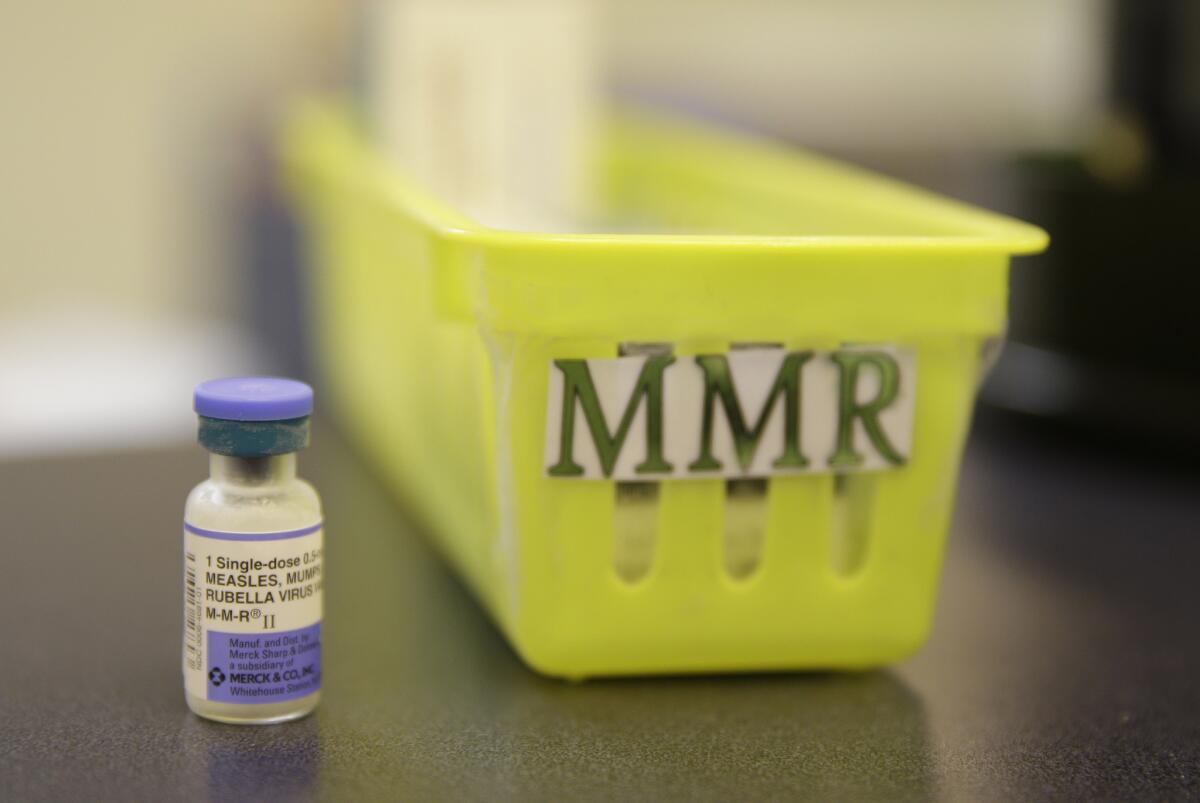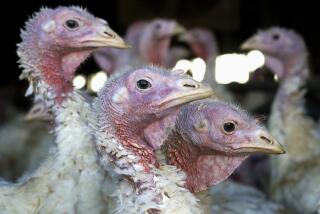California measles outbreak spreads to Canada

The vaccine against measles, mumps and rubella is shown at a clinic in Greenbrae, Calif.
- Share via
Ten measles cases in Canada stem from a visit to Disneyland, health officials announced Wednesday, meaning the California-centered measles outbreak has spread to yet another country.
The 10 patients live in Quebec’s Lanaudiere region, and none had been vaccinated against measles, the Lanaudiere health and social services agency said in a statement. It did not specify the patients’ ages or say why they had not been vaccinated.
Although the agency did not mention Disneyland by name, it said it confirmed that “the first case contracted the virus during a visit to a park in California where other cases have been reported.”
The California-centered outbreak has sickened more than 100 people in North America since December. Health officials have said it is likely that a person with measles visited Disneyland in Anaheim between Dec. 17 and 20, exposing others to the virus. Dozens of cases have been traced to people who were at the park then.
Cases connected to the California outbreak have also been confirmed in at least seven other states and in Mexico.
Of the cases in California, about one in five patients have had to be hospitalized, officials said, and more than half of the California patients have been 20 or older.
Symptoms of measles include fever as high as 105 degrees Fahrenheit, a cough, a runny nose, redness of eyes, and a rash that begins on the head and spreads to the rest of the body. It can lead to inflammation of the brain, pneumonia and death.
Quebec’s health and social services agency recommends that children receive the vaccination against measles, mumps and rubella when they are 12 months old, with a second dose at 18 months.
However, the province does not require that children be vaccinated in order to enroll in school.
Steps can be taken to protect unvaccinated people if their exposure to the measles virus is known. If caught within three days of exposure, a measles vaccine can provide protection from illness. Within six days of exposure, getting a substance called immunoglobulin -- concentrated antibodies extracted from donated blood that boost the immune system -- can also protect the patient, experts said.
Times staff writers Rosanna Xia and Laura J. Nelson contributed to this report.
For more news, follow @raablauren on Twitter.
More to Read
Sign up for Essential California
The most important California stories and recommendations in your inbox every morning.
You may occasionally receive promotional content from the Los Angeles Times.











